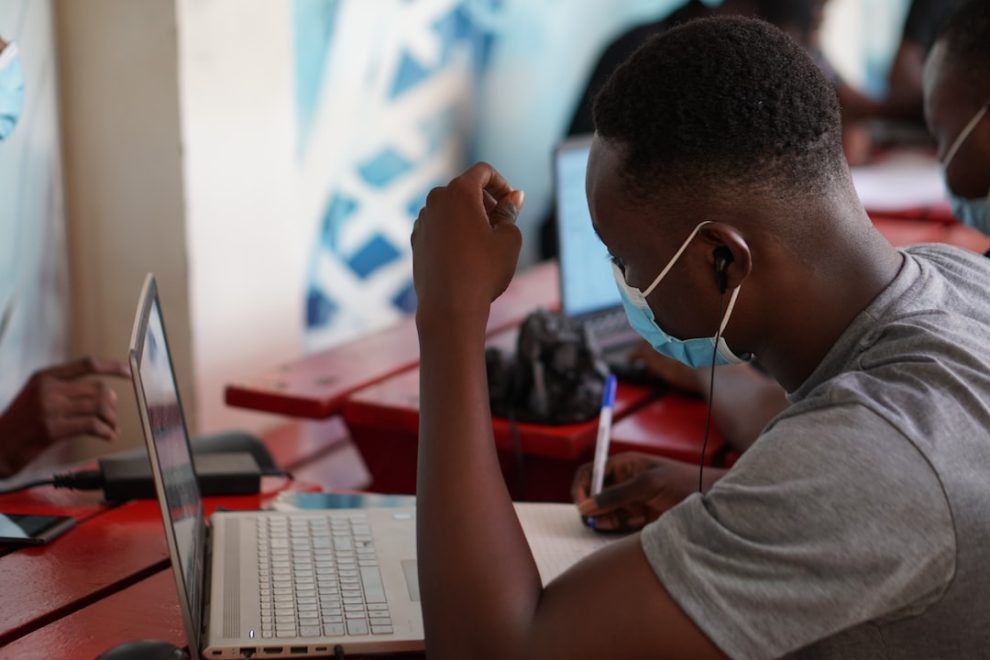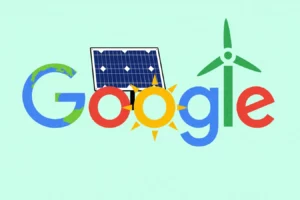Vodafone is a global telecommunications company that is on a mission to connect the world. With a presence in over 150 countries, Vodafone has become one of the largest and most influential communication companies in the world. Through its innovative technologies, partnerships, and initiatives, Vodafone is working to bridge the digital divide and bring mobile and internet services to underserved communities. In this article, we will explore the history and evolution of Vodafone, its role in expanding access to mobile and internet services in developing countries, the impact of its innovative technologies on global communication, its partnerships with other companies and organizations to promote connectivity, its initiatives to bridge the digital divide and promote digital inclusion, the challenges and opportunities of operating a global communication company like Vodafone, its commitment to sustainability and reducing its carbon footprint, its vision for the future of global communication, and success stories and case studies of how Vodafone has transformed communication in different parts of the world.
The History and Evolution of Vodafone
Vodafone started as a small UK-based company in 1984. It was originally a subsidiary of Racal Electronics, a British electronics company. The company’s name was derived from “voice data fone,” which reflected its focus on providing voice and data services. In 1991, Vodafone made history by becoming the first company to launch a commercial mobile network in the UK. This marked the beginning of Vodafone’s journey towards becoming a global communication giant.
Over the years, Vodafone expanded its operations through strategic acquisitions and partnerships. In 2000, Vodafone acquired Mannesmann, a German telecommunications company, in one of the largest corporate takeovers in history. This acquisition gave Vodafone access to Mannesmann’s extensive network and customer base, solidifying its position as a global player in the telecommunications industry.
Since then, Vodafone has continued to grow and evolve. It has expanded its services beyond traditional voice and data to include mobile money, Internet of Things (IoT), and cloud services. Today, Vodafone is recognized as a leader in the telecommunications industry, with a strong presence in both developed and developing countries.
Vodafone’s Role in Expanding Access to Mobile and Internet Services in Developing Countries
One of Vodafone’s key priorities is to bring mobile and internet services to underserved communities in developing countries. Vodafone recognizes the transformative power of connectivity and believes that everyone should have access to these essential services.
To achieve this goal, Vodafone has launched several initiatives in developing countries. For example, in India, Vodafone partnered with the government to launch the Digital India initiative, which aims to provide affordable internet access to all citizens. Through this initiative, Vodafone has expanded its network coverage to rural areas and introduced low-cost data plans to make internet access more accessible.
In Africa, Vodafone has launched the M-Pesa mobile money service, which allows users to send and receive money using their mobile phones. This service has revolutionized banking in Africa, where many people do not have access to traditional banking services. M-Pesa has enabled millions of people to access financial services and participate in the formal economy.
The Impact of Vodafone’s Innovative Technologies on Global Communication
Vodafone’s innovative technologies have transformed the way people communicate around the world. From the introduction of mobile phones to the development of high-speed internet networks, Vodafone has been at the forefront of technological advancements in the telecommunications industry.
One example of Vodafone’s innovative products is its Red Box technology. Red Box is a cloud-based communication platform that enables businesses to manage their communication needs more efficiently. It provides a range of features, including voice calling, video conferencing, instant messaging, and file sharing. Red Box has helped businesses streamline their communication processes and improve collaboration among team members.
Another example is Vodafone’s IoT solutions. Vodafone has developed a range of IoT devices and services that enable businesses to connect and manage their assets remotely. For example, Vodafone’s IoT solutions can be used to monitor and control industrial equipment, track the location of vehicles, and collect data from sensors in smart cities. These technologies have the potential to revolutionize industries and improve efficiency and productivity.
Vodafone’s Partnerships with Other Companies and Organizations to Promote Connectivity
Vodafone recognizes that it cannot achieve its mission to connect the world alone. That is why the company has formed partnerships with other companies and organizations to promote connectivity.
One example of Vodafone’s partnerships is its collaboration with Facebook on the Telecom Infra Project (TIP). TIP is an initiative that aims to develop new technologies and approaches to improve global connectivity. Through this partnership, Vodafone and Facebook are working together to develop innovative solutions that can bring internet access to remote and underserved areas.
Vodafone has also partnered with the United Nations Foundation on the Connect 10×10 initiative. This initiative aims to connect 10 million women entrepreneurs in developing countries to mobile technology by 2020. By providing women with access to mobile phones and internet services, Vodafone and the United Nations Foundation hope to empower them economically and socially.
Vodafone’s Initiatives to Bridge the Digital Divide and Promote Digital Inclusion

Vodafone is committed to bridging the digital divide and promoting digital inclusion. The digital divide refers to the gap between those who have access to digital technologies and those who do not. Vodafone believes that everyone should have equal opportunities to participate in the digital economy.
To bridge the digital divide, Vodafone has launched several initiatives. For example, in partnership with the World Bank, Vodafone has launched the Mobile for Development (M4D) program. This program aims to leverage mobile technology to address social challenges in developing countries, such as healthcare, education, and agriculture. Through the M4D program, Vodafone has developed mobile-based solutions that have improved access to healthcare services, provided educational resources to students in remote areas, and helped farmers increase their productivity.
Vodafone has also launched the Vodafone Foundation, a charitable organization that focuses on using technology for social good. The Vodafone Foundation has implemented various projects around the world, such as providing mobile connectivity to refugees, supporting disaster response efforts, and promoting digital literacy among disadvantaged communities.
The Challenges and Opportunities of Operating a Global Communication Company like Vodafone
Operating a global communication company like Vodafone comes with its own set of challenges and opportunities. On one hand, Vodafone has the opportunity to reach a large customer base and make a significant impact on global communication. On the other hand, it faces challenges such as regulatory complexities, competition, and infrastructure limitations.
One of the main challenges for Vodafone is navigating the regulatory landscape in different countries. Each country has its own regulations and policies regarding telecommunications, which can vary significantly. Vodafone must comply with these regulations while also ensuring that its services are accessible and affordable for all.
Competition is another challenge for Vodafone. The telecommunications industry is highly competitive, with many players vying for market share. Vodafone must constantly innovate and differentiate itself from competitors to stay ahead.
Infrastructure limitations can also pose challenges for Vodafone. In some areas, especially in developing countries, the lack of infrastructure can make it difficult to provide reliable and high-speed internet services. Vodafone must invest in building and upgrading infrastructure to ensure that its services are accessible to all.
Despite these challenges, operating a global communication company like Vodafone also presents numerous opportunities. Vodafone has the opportunity to leverage its global presence and scale to drive innovation and make a positive impact on society. By partnering with other companies and organizations, Vodafone can collaborate on projects that promote connectivity and digital inclusion. Additionally, Vodafone can use its resources and expertise to develop new technologies and services that meet the evolving needs of its customers.
Vodafone’s Commitment to Sustainability and Reducing Its Carbon Footprint
Vodafone is committed to sustainability and reducing its carbon footprint. The company recognizes that the telecommunications industry has a significant environmental impact, and it is taking steps to minimize its footprint.
One of Vodafone’s key sustainability initiatives is its commitment to using renewable energy. Vodafone aims to power its operations with 100% renewable electricity by 2025. The company is investing in renewable energy projects, such as wind and solar farms, to achieve this goal. By transitioning to renewable energy, Vodafone can reduce its reliance on fossil fuels and decrease its carbon emissions.
Vodafone is also working to reduce electronic waste through its recycling programs. The company encourages customers to recycle their old mobile phones and other electronic devices through its take-back programs. Vodafone ensures that these devices are properly recycled and disposed of, minimizing their impact on the environment.
In addition, Vodafone is investing in energy-efficient technologies and practices to reduce its energy consumption. The company is implementing measures such as energy-efficient lighting, cooling systems, and data center optimization to minimize its energy usage.
The Future of Global Communication and Vodafone’s Vision for the Future
The future of global communication holds exciting possibilities, and Vodafone is at the forefront of shaping this future. Vodafone envisions a world where everyone is connected and has access to affordable and reliable communication services.
To prepare for the future, Vodafone is investing in emerging technologies such as 5G, artificial intelligence (AI), and IoT. These technologies have the potential to revolutionize communication by enabling faster speeds, greater capacity, and more intelligent networks.
Vodafone also recognizes the importance of data privacy and security in the digital age. The company is committed to protecting customer data and ensuring that its services are secure. Vodafone is investing in cybersecurity measures and working with industry partners to develop best practices for data protection.
Furthermore, Vodafone is exploring new business models and revenue streams to adapt to the changing landscape of the telecommunications industry. The company is diversifying its offerings beyond traditional voice and data services to include digital services such as cloud computing, IoT, and mobile money.
Success Stories and Case Studies of How Vodafone Has Transformed Communication in Different Parts of the World
Vodafone has transformed communication in different parts of the world through its innovative technologies and initiatives. Here are some success stories and case studies that highlight Vodafone’s impact:
1. M-Pesa in Kenya: Vodafone’s M-Pesa mobile money service has had a significant impact on financial inclusion in Kenya. Through M-Pesa, people can send and receive money, pay bills, and access other financial services using their mobile phones. M-Pesa has enabled millions of Kenyans, especially those in rural areas, to access financial services and participate in the formal economy.
2. Project Spring in India: Vodafone’s Project Spring initiative aimed to expand network coverage and improve the quality of service in India. Through this initiative, Vodafone invested heavily in building new infrastructure and upgrading existing networks. As a result, millions of people in India now have access to reliable mobile and internet services.
3. Instant Network Schools in Tanzania: Vodafone’s Instant Network Schools program provides digital education resources to schools in rural areas of Tanzania. The program uses solar-powered classrooms equipped with tablets, laptops, and internet connectivity to deliver educational content to students. This initiative has improved access to quality education for thousands of students in remote areas.
Vodafone’s mission to connect the world is driven by its commitment to bridging the digital divide, promoting digital inclusion, and empowering communities through connectivity. Through its innovative technologies, partnerships, and initiatives, Vodafone has transformed the way people communicate and access information around the world. From expanding access to mobile and internet services in developing countries to promoting sustainability and reducing its carbon footprint, Vodafone is making a positive impact on global communication. As the telecommunications industry continues to evolve, Vodafone is well-positioned to shape the future of global communication and drive positive change.
















Add Comment